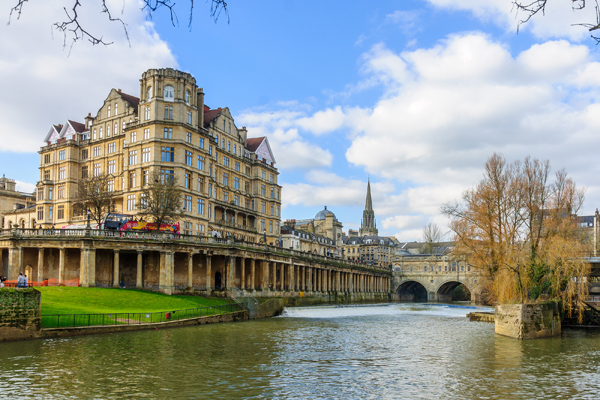Retire in Bath Guide
Summary: Retire in Bath with confidence, armed with the knowledge from our extensive guide. It covers critical considerations for retirees, from the cost of living and climate to housing, healthcare, and residency choices in Bath. We also delve into the social and cultural scene, volunteering options, public transportation facilities, and the city's walkability, helping you make an informed decision.

Bath, is a city steeped in history and culture, making it an attractive destination for international retirees. The city offers a unique blend of ancient Roman and Georgian architecture, picturesque landscapes, and a vibrant cultural scene. However, retiring in Bath also presents its own set of challenges, such as adjusting to a new culture, navigating the healthcare system, and managing the cost of living.
Cost of Living in Bath
The cost of living in Bath is relatively high compared to other UK cities. However, it's worth noting that the quality of life is also high. Housing tends to be the most significant expense, with a mix of Georgian townhouses, modern apartments, and quaint cottages available. Groceries, utilities, and transportation costs are comparable to other parts of the UK. Despite the higher cost of living, many retirees find the city's charm and amenities worth the price.
Climate Throughout the Year
Bath experiences a temperate maritime climate, with mild winters and warm summers. Rainfall is evenly distributed throughout the year, and snow is rare. The city's climate is generally pleasant, making it ideal for outdoor activities and sightseeing.
Healthcare Facilities
Bath is home to the Royal United Hospital, which provides a wide range of medical services. There are also numerous GP practices and specialist clinics throughout the city. The quality of healthcare in Bath is generally high, with well-trained medical staff and modern facilities.
Public Healthcare System
International retirees in the UK are eligible to use the National Health Service (NHS), which provides free or low-cost healthcare. However, eligibility depends on immigration status and whether a person is ordinarily resident in the UK. Many retirees opt for private health insurance to supplement NHS services.
Residency Options
Retirees from outside the European Economic Area (EEA) will need to apply for a visa to live in the UK. The most common option is the Retirement Visa, which requires proof of financial self-sufficiency and a UK sponsor. EEA citizens currently have the right to live and work in the UK without a visa.
Parks and Recreational Activities
Bath is home to several beautiful parks, including the Royal Victoria Park and Sydney Gardens. The city also offers a wealth of recreational activities, from visiting the historic Roman Baths and Bath Abbey to enjoying performances at the Theatre Royal.
Local Restaurants
Food lovers will be spoilt for choice in Bath. The city boasts a range of eateries, from traditional pubs like The Raven and The Bell Inn to international cuisine at Yak Yeti Yak and Sotto Sotto.
Language Learning Opportunities
While English is the primary language in Bath, retirees interested in learning a new language can enroll in courses at the Bath College or the University of Bath's Centre for the Study of Cultural Processes.
Local Culture
Bath locals, known as Bathonians, are generally friendly and welcoming. The city has a relaxed pace of life, with a strong emphasis on culture and the arts. Weekly markets, such as the Bath Farmers' Market and the Artisan Market, offer a chance to mingle with locals and enjoy local produce and crafts.
Meeting People and Volunteering
Retirees can meet people through various clubs and societies, such as the Bath Bridge Club or the Bath Natural History Society. Volunteering is also popular, with opportunities available at the Bath Preservation Trust and the Royal United Hospital's volunteer service.
Housing Options
Most retirees in Bath live in the city centre or in the surrounding countryside. The city centre offers convenience and easy access to amenities, while the outskirts provide more space and tranquility. Public transportation in Bath is excellent, so a car is not necessary for getting around.
About the Author
 Betsy Burlingame is the Founder and President of Expat Exchange and is one of the Founders of Digital Nomad Exchange. She launched Expat Exchange in 1997 as her Master's thesis project at NYU. Prior to Expat Exchange, Betsy worked at AT&T in International
and Mass Market Marketing. She graduated from Ohio Wesleyan University
with a BA in International Business and German.
Betsy Burlingame is the Founder and President of Expat Exchange and is one of the Founders of Digital Nomad Exchange. She launched Expat Exchange in 1997 as her Master's thesis project at NYU. Prior to Expat Exchange, Betsy worked at AT&T in International
and Mass Market Marketing. She graduated from Ohio Wesleyan University
with a BA in International Business and German.
Some of Betsy's articles include 12 Best Places to Live in Portugal, 7 Best Places to Live in Panama and 12 Things to Know Before Moving to the Dominican Republic. Betsy loves to travel and spend time with her family. Connect with Betsy on LinkedIn.




